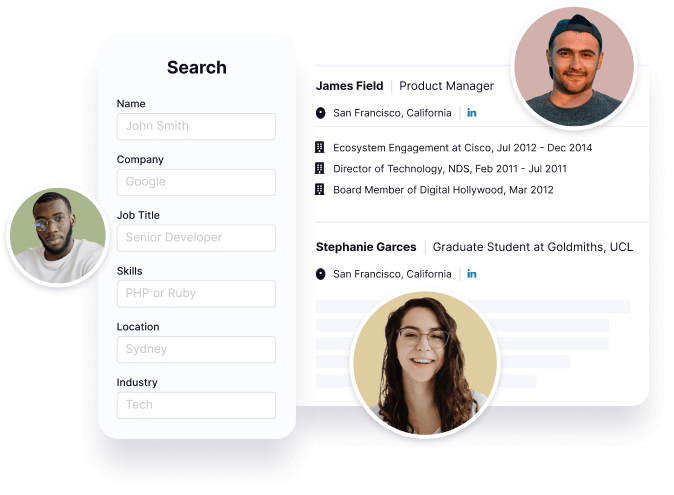Alex Ford's Email & Phone Number
JavaScript Full Stack Developer at Vivint Solar
Alex Ford Email Addresses
Alex Ford Phone Numbers
Alex Ford's Work Experience



KLAS Enterprises
Senior Web Developer
September 2010 to July 2013

Chevtek Web Solutions
Owner
June 2006 to September 2010
Show more
Show less
Alex Ford's Education
Neumont University
April 2024 to April 2024
Show more
Show less
Frequently Asked Questions about Alex Ford
What company does Alex Ford work for?
Alex Ford works for Vivint Solar
What is Alex Ford's role at Vivint Solar?
Alex Ford is JavaScript Full Stack Developer
What is Alex Ford's personal email address?
Alex Ford's personal email address is al****[email protected]
What is Alex Ford's business email address?
Alex Ford's business email addresses are a*****@codetunnel.com, and a****[email protected]
What is Alex Ford's Phone Number?
Alex Ford's phone (801) ***-*129
What industry does Alex Ford work in?
Alex Ford works in the Computer Software industry.
Alex Ford's Professional Skills Radar Chart
Based on our findings, Alex Ford is ...
What's on Alex Ford's mind?
Based on our findings, Alex Ford is ...
Alex Ford's Estimated Salary Range
Alex Ford Email Addresses
Alex Ford Phone Numbers
Find emails and phone numbers for 300M professionals.
Search by name, job titles, seniority, skills, location, company name, industry, company size, revenue, and other 20+ data points to reach the right people you need. Get triple-verified contact details in one-click.In a nutshell
Alex Ford's Ranking
Ranked #69 out of 1,378 for JavaScript Full Stack Developer in Utah
Alex Ford's Personality Type
Introversion (I), Intuition (N), Thinking (T), Perceiving (P)
Average Tenure
2 year(s), 0 month(s)
Alex Ford's Willingness to Change Jobs
Unlikely
Likely
Open to opportunity?
There's 100% chance that Alex Ford is seeking for new opportunities











Alex Ford's Social Media Links
/in/chevex /company/vivintsolar /school/neumont-college-of-computer-science/